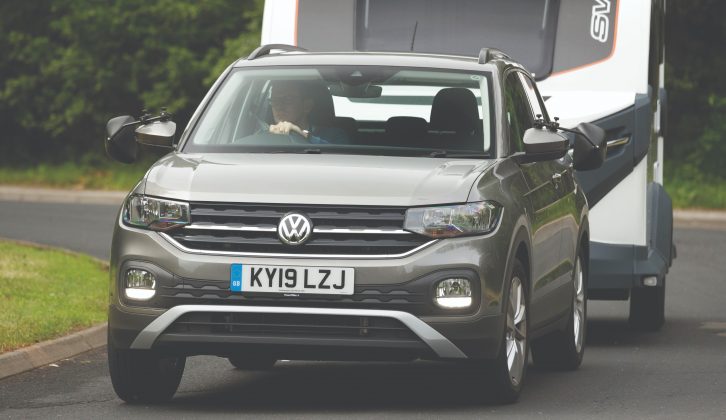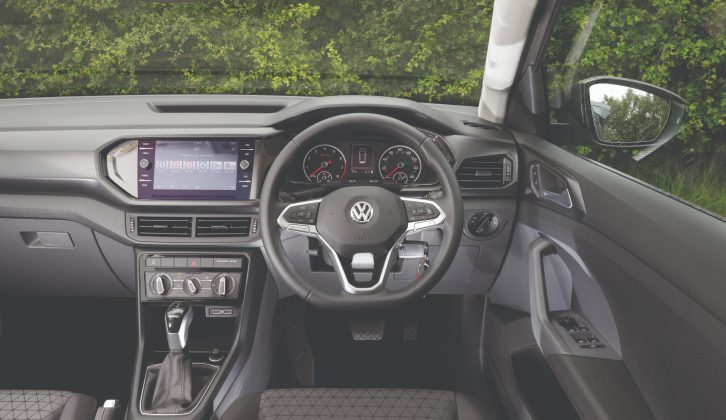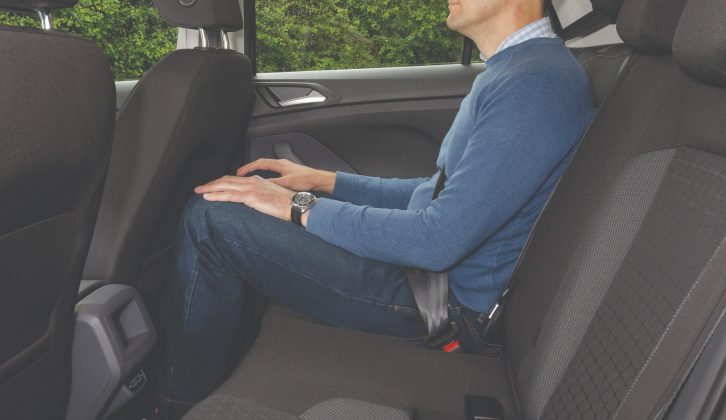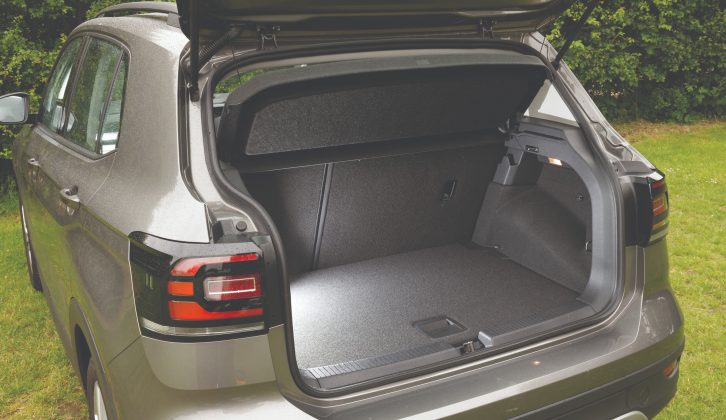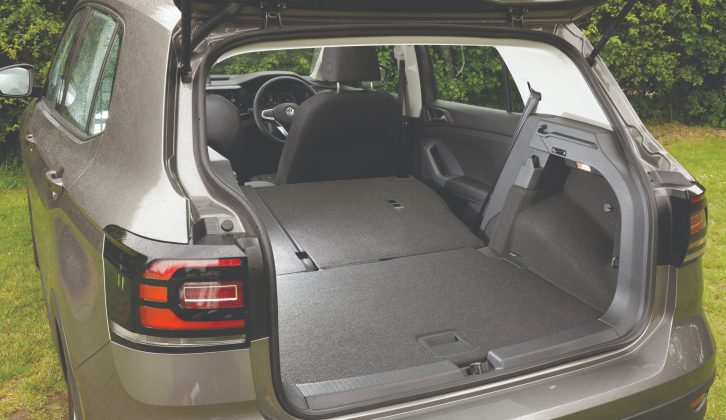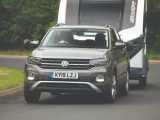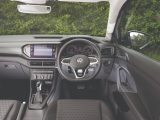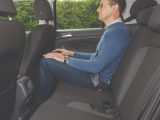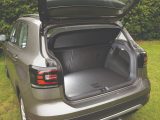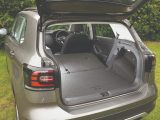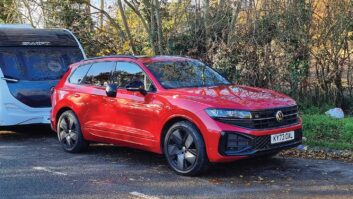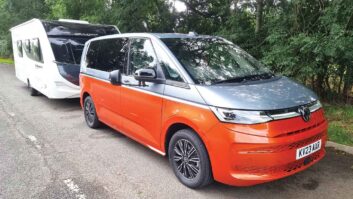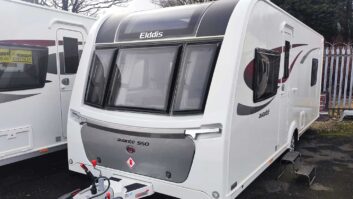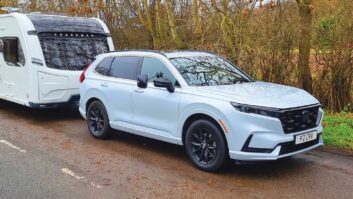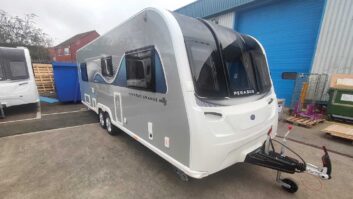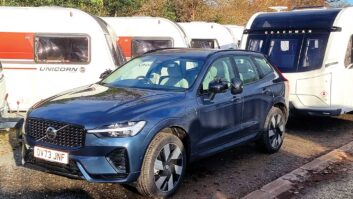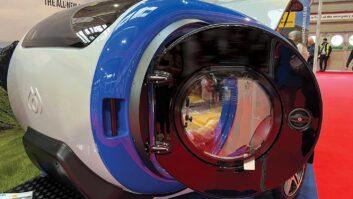Verdict
The T-Cross makes a good small tow car if you’re not in a hurry, but the standard of equipment is modest.
Pros
Well-controlled suspension
Plenty of space for a small SUV
Cons
Relatively modestly powered
Manual air conditioning rather than climate control
The new T-Cross is the smallest member of Volkswagen’s SUV family. It’s closely related to the Seat Arona and the forthcoming Skoda Kamiq. For a small car, the T-Cross is big on safety, with a wide range of driver aids and a five-star Euro NCAP rating.
On solo driving the VW's 1.0-litre engine is very willing and performs with great verve'
Towing
The T-Cross is a small car, only a little longer than a Volkswagen Polo or a Ford Fiesta. That’s reflected in a low kerbweight of 1270kg, giving an 85% match figure of 1080kg. Given the car’s modest power (113bhp) and torque (147lb ft), you probably wouldn’t want to tow a lot more.
Time was a 1.0-litre engine might have struggled to perform with just the car on its own to haul around, but small-capacity turbocharged petrol engines have come a long way in the past few years. So long as you’re not expecting miracles, the engine does an acceptable job.
We paired the VW to a Swift Basecamp with a Mass in Running Order of 916kg. The T-Cross was willing to pull away smartly, and made steady progress well beyond 30mph. The seven-speed DSG auto did its best to help, changing gear promptly and smoothly to keep the engine on the boil.
Even so, overtaking on a single-carriageway road will take a long straight stretch and plenty of patience.
On country roads, the T-Cross’s well-controlled suspension helps with stability, and the Basecamp followed the VW obediently.
For the most part, the same was true on the motorway. It always took a heavy right foot to tow up to speed on a slipway, but the car felt stable enough at the legal limit. However, in cross winds or when caught by the bow wave of an HGV we could feel the caravan bobbing from side to side.
In damp conditions, the T-Cross made heavy weather of a hill start on a 1-in-10 slope. The handbrake held car and caravan securely, but it was hard to avoid either spinning the front wheels or bogging down when pulling away.
Arrive at a campsite, and you’ll find the T-Cross is straightforward to manoeuvre; although the absence of a rear parking camera or rear parking sensors makes hitching up on your own tricky.
On the plus side, the towbar installation is neat and the electrics can be accessed easily.
Everyday Driving
Towing may be asking a lot of the VW’s 1.0-litre engine, but in solo driving it’s very willing and performs with great verve. The auto gearbox takes the strain out of driving in stop-start traffic, but doesn’t prevent the driver from enjoying themselves if the road clears.
The steering is precise and well weighted, and the suspension settings adroitly judged, even if the ride tends towards the firm side.
The T-Cross is a quiet car. Engine noise isn’t intrusive, and the sound you do hear is quite appealing. There’s some wind and road noise at speed, but neither is excessive.
Space
You get a lot of space in the T-Cross considering that it’s only just over 4.2 metres long. Those in the front in particular have as much room as in many larger cars. However, the interior finish is disappointing, with too many hard and unappealing plastics.
The rear seats offer enough room for adults, provided those in the front aren’t too tall. But we would like to see air vents between the front seats or in the door pillars.
Unusually for a car of this size, the rear seats slide back and forth to juggle rear legroom and boot space. That’s novel, but we don’t see this feature being as useful as it would be in a bigger car. With the bench all the way back there’s 385 litres for bags. That compares with a Renault Captur’s 455 litres – a figure the VW matches with its seats slid forwards.
Running Costs
Given that it’s not cheap, the SE-spec T-Cross is high-tech in some respects, but rather basic in others. Adaptive cruise control (which adjusts the car’s speed to hold a set distance from the car in front) is standard, along with autonomous emergency braking and a system to steer the car back into lane if it begins to drift out. However, you make do with manual air conditioning rather than climate control, sat nav is a £725 option and front and rear parking sensors add £450 to the price.
Running costs should be affordable. The official combined economy is 45.7mpg, and during our test we achieved 26.7mpg while towing.
Technical Specifications
| Engine Size | 999 cc |
| Kerbweight | 1270 kg |
| 85% KW | 1080 kg |
| Towball Limit | 55 kg |
| Maximum Towing Limit | 1100 kg |
| Power | 113 bhp |
| Torque | 147 lb ft |
| Offical MPG | 45.7 mpg |
| Towing MPG | 26.7 mpg |
| CO₂ | 111 g/km |
